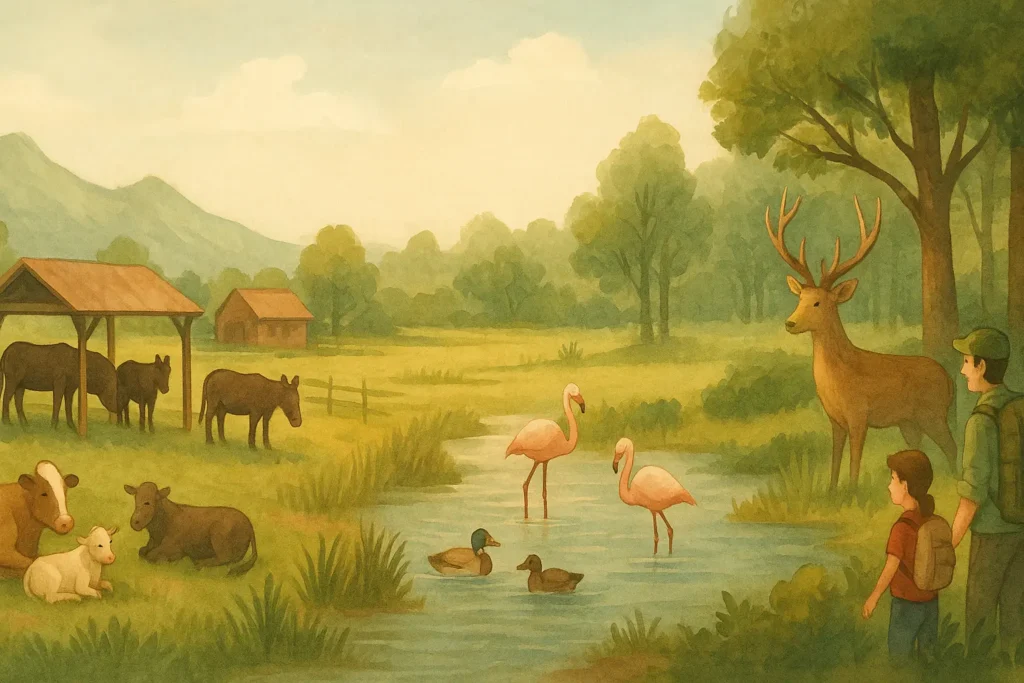Temmuz 24, 2025
admin
Animal Welfare

Animal Welfare Policy
Our Animal Welfare Policy ensures that all interactions with animals prioritize their well-being, dignity, and natural behaviors. We commit to supporting only ethical practices that provide animals with proper care, shelter, nutrition, and medical attention. We do not endorse any form of exploitation, and we encourage respectful, non-invasive wildlife experiences that protect both animals and their habitats.
Respectful Wildlife Photography
Avoid participating in photo opportunities that involve wild or captive animals used for entertainment purposes. These activities often contribute to the mistreatment of animals, as many are subjected to harsh training methods, confined to inadequate living conditions, and experience significant stress when forced to interact with people.
Animals used in this way are frequently removed from their natural habitats and deprived of the ability to express natural behaviors. Instead, choose to photograph animals in the wild, where they are free to live undisturbed. Support ethical experiences that allow you to observe and capture wildlife from a respectful distance, without interfering with their natural routines. Responsible photography not only protects animals but also helps promote awareness and appreciation for their conservation.
Compassionate Care for All Animals
Support only those activities, sanctuaries, or tourism experiences that prioritize the health, dignity, and natural needs of animals. Ethical animal care means providing clean and spacious shelter, access to fresh food and water, regular veterinary attention, and the freedom to express natural behaviors without fear or distress.
Facilities should avoid practices that cause harm, stress, or exploitation for entertainment or profit. Instead, they must demonstrate a deep respect for animal welfare through transparent operations and a commitment to lifelong care. We choose to partner only with organizations that uphold these standards and promote responsible, humane treatment of all animals in their care.
Respect Their Space
While it may be tempting to pet or interact with wild or domestic animals, even well intentioned touch can cause serious stress, discomfort, or confusion. Many animals, especially wildlife, perceive human contact as a threat, which can alter their behavior, lead to defensive or aggressive reactions, or create long term anxiety.
Even domestic or rescued animals may have past traumas or health conditions that make physical interaction unsafe for both the animal and the human. By observing animals quietly from a respectful distance, you allow them to remain calm and act naturally in their environment. This not only protects the animal’s well being but also creates a more authentic, safe, and meaningful connection with the natural world. Ethical wildlife and animal tourism begins with empathy, by giving animals the space they deserve.
Feeding with Care: Let Wildlife Stay Wild
Feeding wild or domestic animals may seem like a kind gesture, but it can lead to serious harm. Animals have specific dietary needs, and human food no matter how harmless it may seem can disrupt their digestive systems, cause illness, or even lead to long-term health problems. Feeding can also change natural behaviors, causing animals to become dependent on humans for food rather than foraging or hunting as they would in the wild. In some cases, it can lead to increased aggression or risky interactions between animals and people.
These changes not only endanger the animals but also threaten the balance of local ecosystems. To protect wildlife and ensure their survival in their natural habitats, never feed animals unless under the guidance of a trained and qualified professional. Responsible observation, not interference, is key to ethical and sustainable wildlife experiences.
